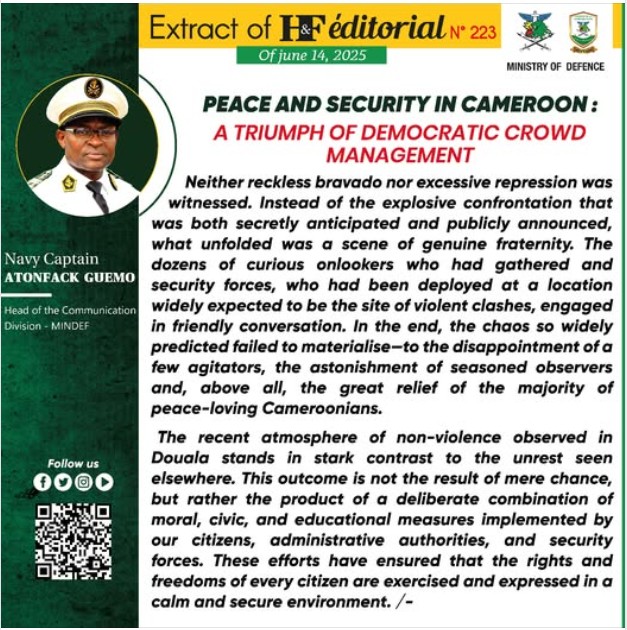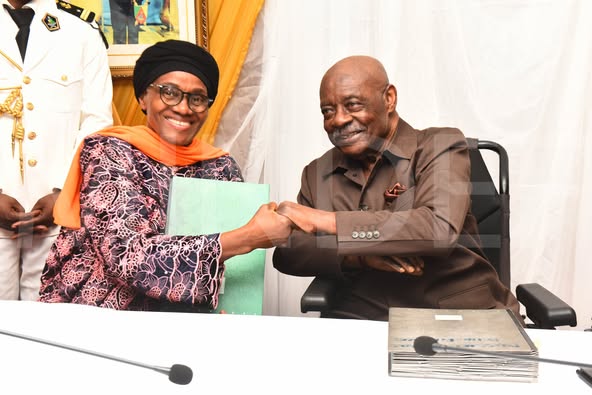Neither reckless bravado nor excessive repression was witnessed. Instead of the explosive confrontation that was both secretly anticipated and publicly announced, what unfolded was a scene of genuine fraternity. The dozens of curious onlookers who had gathered and security forces, who had been deployed at a location widely expected to be the site of violent clashes, engaged in friendly conversation. In the end, the chaos so widely predicted failed to materialise—to the disappointment of a few agitators, the astonishment of seasoned observers and, above all, the great relief of the majority of peace-loving Cameroonians.
The recent atmosphere of non-violence observed in Douala stands in stark contrast to the unrest seen elsewhere. This outcome is not the result of mere chance, but rather the product of a deliberate combination of moral, civic, and educational measures implemented by our citizens, administrative authorities, and security forces. These efforts have ensured that the rights and freedoms of every citizen are exercised and expressed in a calm and secure environment.
Our naturally peaceful compatriots deserve commendation for their civic-mindedness, discernment, and wisdom in all circumstances. Drawing upon past experience, increasingly comprehensive education, and common sense, Cameroonians understand that the aspiration for a better life—however legitimate—can only be realised in an environment of peace and security. Their gathering was not intended to provoke, but rather to seek information and understanding.
For the administrative authorities, once again, the principle of responsibility has proved its worth. Leadership is, fundamentally, about foresight. It was essential to prevent any act that might have tipped a climate of trust into violence. Had even the slightest incident occurred, questions would have been raised and criticisms leveled at those charged with ensuring our collective security. Indeed, dangerous narratives and sensational reports were at the ready in newsrooms, not to mention the statements of indignation prepared in certain diplomatic circles.
The professionalism of our security forces also merits recognition. Balancing the demands and restrictions of maintaining order with the legitimate rights and freedoms of citizens is no easy task. Yet our brave soldiers navigate this challenge with rare conviction, favouring proximity over distance and opting for conciliation rather than coercion. This approach aligns with the core principles of human-centered policing and democratic crowd management. Given the results achieved, it would be difficult for any reasonable observer to find fault.
Ultimately, recent events have once again demonstrated that, regardless of status or position, Cameroonians recognise themselves in one another, united by common origins and a shared commitment to the same ideals.
In the final analysis, all remain convinced that “peace is paramount.” /-



